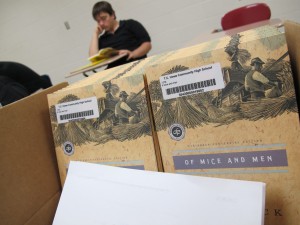NYT: Why Teachers Tend To Impact Math Scores More Than Reading Scores
While school leaders “often fret about the state of math education, particularly in comparison with other countries,” New York Times education reporter Motoko Rich writes teachers’ greater challenge may be boosting reading scores — particularly at low-income schools:
Studies have repeatedly found that “teachers have bigger impacts on math test scores than on English test scores,” said Jonah Rockoff, an economist at Columbia Business School. He was a co-author of a study that showed that teachers who helped students raise standardized test scores had a lasting effect on those students’ future incomes, as well as other lifelong outcomes.
Teachers and administrators who work with children from low-income families say one reason teachers struggle to help these students improve reading comprehension is that deficits start at such a young age… By the time they are 4 years old, children from poor families have heard 32 million fewer words than children with professional parents.
By contrast, children learn math predominantly in school.“Your mother or father doesn’t come up and tuck you in at night and read you equations,” said Geoffrey Borman, a professor at the Wisconsin Center for Education Research at the University of Wisconsin. “But parents do read kids bedtime stories, and kids do engage in discussions around literacy, and kids are exposed to literacy in all walks of life outside of school.”
As Rich continues, students must bring cultural knowledge of the world outside of school into reading class. Students who come from different cultural backgrounds can find themselves at a disadvantage. By comparison, math class doesn’t have this problem.
But that could change, an expert told The Times, as schools across the country begin adoption of nationally-crafted academic standards in math. We’ve reported on how the Common Core math standards differ from Indiana’s current math standards — a shift, national experts say, that could require students to bring more cultural knowledge from outside of school into math class.
While Superintendent of Public Instruction Glenda Ritz has advocated for a change in how Indiana assesses students’ reading skills, she has also pointed out the stakes of getting math instruction right are high.
“We have a huge remediation problem in mathematics,” she told StateImpact in February. “Our community colleges spend over $35 million remediating K-12 students in math. We know math standards need to be regarded at a very high level to get into many career technology jobs in today’s society, so we have to be sure that we’re getting it right.”

